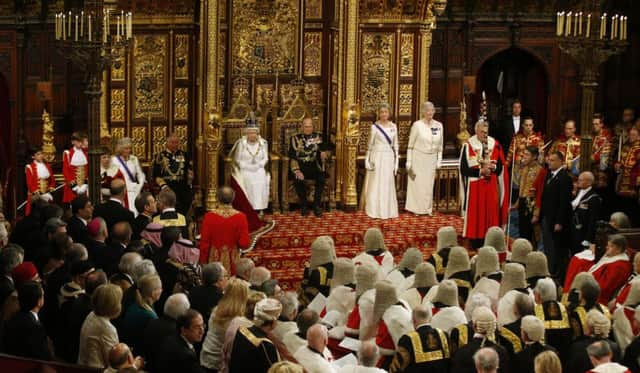Nicola Sturgeon: Holyrood will oppose British Bill of Rights


David Cameron’s programme of government for the coming year included a commitment to bring forward legislation which would see the Human Rights Act (HRA) effectively replaced.
UK ministers say the move is aimed at “better protecting against abuse of the system and misuse of human rights laws.”
Advertisement
Hide AdAdvertisement
Hide AdThe British Bill of Rights was a manifesto pledge, but is opposed by civil liberties groups who think it will restrict freedoms guaranteed under the European Convention on Human Rights (ECHR) which is incorporated in UK law under HRA.
But Ms Sturgeon said yesterday: “I have made clear that the Scottish Government opposes any weakening of human rights protections – not just in Scotland, but across the whole of the UK.
“My administration has been elected to take forward a progressive agenda – embedding human rights in everything we do, not seeking to erode safeguards which matter to everyone in society. And I have also made clear that UK legislation which attacks human rights cannot expect consent from the Scottish Parliament.”
Many Conservatives, believe the HRA has been misinterpreted, so that decisions in the European Court of Human Rights in Strasbourg could be regarded as taking precedence over the UK’s Supreme Court.
For example, the UK bans prisoners from voting, which Strasbourg says contravenes the ECHR.
But Judith Robertson, chair of the Scottish Human Rights Commission, said the reasons behind the Bill were “thoroughly unclear.”
She added: “The Human Rights Act already does a perfectly good job of protecting the fifteen rights and freedoms contained in the European Convention on Human Rights.
“There is no appetite in Scotland for regressive changes to our human rights laws. People and organisations in Scotland are far more concerned with questions of how to better fulfil all human rights in practice, in people’s everyday lives. Continued threats to the Human Rights Act by the UK government must not distract from this important challenge.
Advertisement
Hide AdAdvertisement
Hide Ad“As the Scottish Parliament returns to business this week, the commission looks forward to working with all parties to protect our human rights laws and to better guarantee people’s rights in practice.”
The Queen’s Speech set out a relatively modest agenda of 21 bills which focused on English prison reform, adoption and universities and largely avoided the kind of contentious legislation which might fuel opposition during the EU referendum period.
But the absence of a Sovereignty Bill in the Queen’s speech prompted a furious reaction from leading Brexit campaigner, the former cabinet minister Iain Duncan Smith.
He accused David Cameron of ditching the proposal - aimed at re-asserting UK Government sovereignty over the EU – in order to improve the chances of a Remain vote in the June 23 referendum.
“The much-vaunted Sovereignty Bill, key to the argument that the PM had secured a reform of the EU, has been tossed aside as well,” he said. “The fear in government must be that, as no-one in Britain buys the idea that the EU has been reformed, the Sovereignty Bill would draw the public’s attention back to that failure.”